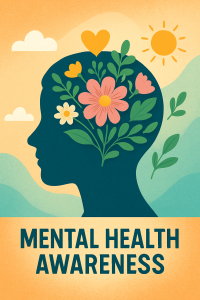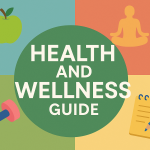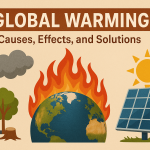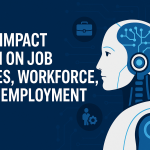In recent years, mental health has emerged as a critical area of public health discourse, gaining long-overdue recognition alongside physical health. The World Health Organization (WHO) defines mental health as “a state of well-being in which every individual realizes his or her own potential, can cope with the normal stresses of life, can work productively and fruitfully, and is able to make a contribution to their community” WHO, 2022.
Despite this definition, mental health remains a subject clouded by stigma, misinformation, and neglect. Raising awareness about mental health is not just a matter of social justice—it is a vital step toward fostering healthier, more resilient communities.

The Global Burden of Mental Illness
According to the WHO, depression is one of the leading causes of disability worldwide, and suicide is the fourth leading cause of death among 15-29-year-olds WHO, 2021. In 2020, the COVID-19 pandemic intensified global mental health challenges, with an estimated 25% increase in anxiety and depression cases globally Lancet, 2021.
Mental disorders such as depression, anxiety, bipolar disorder, and schizophrenia affect more than 1 billion people globally, yet most do not receive the help they need. The treatment gap—the difference between the number of people needing care and those who receive it—is alarming. In low- and middle-income countries, between 76% and 85% of people with mental disorders receive no treatment at all WHO, 2022.
Stigma and Misinformation
One of the major barriers to mental health care is stigma. People struggling with mental illness are often seen as weak, unstable, or even dangerous. This stigma discourages individuals from seeking help, sharing their struggles, or even recognizing the symptoms within themselves.
A study published by the National Institutes of Health (NIH) reveals that individuals with mental illness face discrimination in employment, education, and even health care access NIH, 2021. Such prejudice not only exacerbates the psychological burden on sufferers but also isolates them socially, creating a vicious cycle of poor mental health.
Mental Health and Youth
Youth and adolescents are particularly vulnerable to mental health issues. The United Nations Children’s Fund (UNICEF) reported in 2021 that over 13% of adolescents aged 10–19 live with a diagnosed mental disorder UNICEF, 2021. Bullying, academic pressure, family issues, and social media comparisons all contribute to this rising crisis.
Unfortunately, schools and families often lack the tools or training to recognize the early signs of mental distress. Integrating mental health education into school curriculums can be a powerful step toward prevention, early intervention, and de-stigmatization.
Workplace Mental Health
Mental health is equally crucial in the workplace. The World Economic Forum has identified poor mental health as a significant drain on productivity, costing the global economy $1 trillion annually in lost productivity due to depression and anxiety WEF, 2022.
Workplace stress, burnout, and unrealistic expectations can lead to serious psychological consequences. According to the American Psychological Association, 79% of employees have experienced work-related stress in the past month, yet only 40% feel their employers support their mental well-being APA, 2023.
Creating psychologically safe environments, offering Employee Assistance Programs (EAPs), and training managers in mental health literacy are steps businesses can take to support their employees.
Mental Health and Social Media
Social media is a double-edged sword when it comes to mental health. On one hand, it allows people to share their experiences, access resources, and build communities. On the other hand, excessive use can lead to anxiety, depression, and low self-esteem, especially among adolescents.
Research by the Royal Society for Public Health in the UK ranked Instagram and Snapchat as the most detrimental social media platforms for mental health, particularly due to their links to anxiety, depression, and body image issues RSPH, 2017.
Digital literacy, parental guidance, and time-limiting strategies are essential tools to mitigate these risks.
The Importance of Early Intervention
The earlier mental health disorders are detected and treated, the better the outcomes. Mental illness often begins during adolescence or early adulthood, yet early signs—like changes in behavior, mood, or performance—are frequently overlooked.
Effective early intervention involves:
-
Regular mental health screenings
-
Open communication at home and school
-
Accessible counseling services
-
Peer support groups
Countries like Australia have implemented programs such as Headspace, which provide early intervention mental health services for 12 to 25-year-olds Headspace Australia, and these have shown promising results in reducing psychological distress.
The Role of Government and Policy
Governments have a key role in promoting mental health awareness through:
-
Legislation: Enforcing mental health parity laws to ensure equal treatment under insurance.
-
Funding: Allocating adequate budgets for mental health services.
-
Public Campaigns: Promoting awareness, especially in rural and underserved areas.
In India, the Mental Healthcare Act of 2017 is a landmark legislation that emphasizes the rights of individuals with mental illness and the responsibility of the government to provide care and treatment Government of India.
The Power of Awareness Campaigns
Campaigns like World Mental Health Day (October 10), Bell Let’s Talk in Canada, and the #MentalHealthAwareness hashtag have helped spark conversations globally.
These initiatives aim to:
-
Normalize seeking help
-
Highlight real-life stories
-
Provide accessible resources
-
Challenge societal myths
When celebrities, influencers, or public figures speak up about their struggles, it helps humanize mental illness and encourage others to open up as well.
What Can You Do?
-
Educate Yourself and Others
Learn the signs of mental health disorders and share that knowledge with your peers. -
Start Conversations
Talking about mental health reduces stigma and creates space for vulnerability. -
Support Mental Health Organizations
Donate or volunteer with groups. -
Prioritize Self-Care
Balanced nutrition, regular exercise, quality sleep, and mindfulness practices significantly benefit mental health. -
Be an Advocate
Call for better school counseling programs, workplace wellness policies, and government action.
Conclusion
Mental health awareness is not just a campaign or a hashtag—it is a necessary movement toward a more compassionate, resilient society. By challenging stigma, promoting education, supporting early intervention, and advocating for systemic change, we can create a world where mental health is treated with the urgency, dignity, and care it deserves.
As the WHO says, “There is no health without mental health.”









